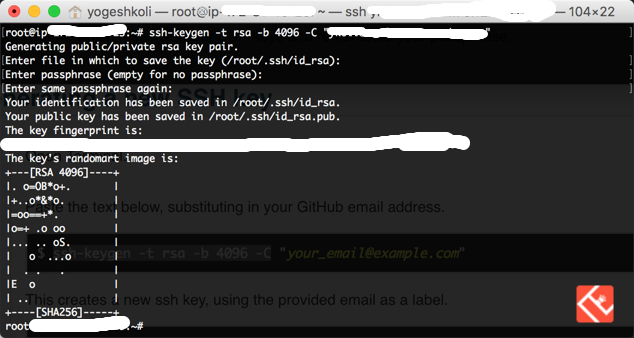Generate Git Ssh Key Ubuntu
SSH keys are a necessity for Python development when you are working withGit, connecting to remote servers and automating yourdeployments. Let's walk through how to generate SSHkey pairs, which contain both a public and a private key within a singlepair, on Ubuntu Linux.
Generating the Public and Private Keys
Open up a new terminal window in Ubuntu like we see in the followingscreenshot.
Git
Apr 28, 2017 SSH keys are a necessity for Python development when you are working with Git, connecting to remote servers and automating your deployments.Let's walk through how to generate SSH key pairs, which contain both a public and a private key within a single pair, on Ubuntu Linux. Create an SSH key. Follow these steps if you don't already have an SSH key for an account. If you do have an SSH key and you want to generate another key, you'll have to use the terminal because you can't use Sourcetree to create a second key. Creating an SSH key looks something like this: From the Sourcetree menu, select Preferences.
The ssh-keygen command provides an interactive command line interface forgenerating both the public and private keys. Invoke ssh-keygen with thefollowing -t and -b arguments to ensure we get a 4096 bit RSA key.Optionally, you can also specify your email address with -C (otherwiseone will be generated off your current Linux account):

(Note: the -o option was introduced in 2014; if this command fails for you, simply remove the -o option)
The first prompt you will see asks where to save the key. However, there areactually two files that will be generated: the public key and the privatekey.
This prompt refers to the private key and whatever you enter will alsogenerate a second file for the public key that has the same name and .pubappended.
If you already have a key, you should specify a new filename. I use manySSH keys so I typically name them 'test-deploy', 'prod-deploy', 'ci-server'along with a unique project name. Naming is one of those hard computerscience problems, so take some time to come up with a system that works foryou and the development team you work with!
Next you will see a prompt for an optional passphrase:
Whether or not you want a passphrase depends on how you will use the key.The system will ask you for the passphrase whenever you use the SSH keyso it is more secure.However, if you are automating deployments with acontinuous integration server likeJenkins then you will not want a passphrase.
Be aware that it is impossible to recover a passphrase if it is lost. Keepthat passphrase safe and secure because otherwise a completely new key wouldhave to be generated.
Enter the passphrase (or just press enter to not have a passphrase) twice.You'll see some output like the following:
Your SSH key is now generated and ready to use!
What now?
Now that you have your public and private keys, I recommend settingup a Python development environment withone of the following tutorials so you can start coding:
Additional ssh-keygen command resources:
Generate Git Ssh Key Ubuntu Download
Questions? Contact me via Twitter@fullstackpythonor @mattmakai. I'm also on GitHub withthe username mattmakai.
Generate Git Ssh Key Ubuntu Download
See something wrong in this post? Forkthis page's source on GitHuband submit a pull request. Windows 7 universal key generator.